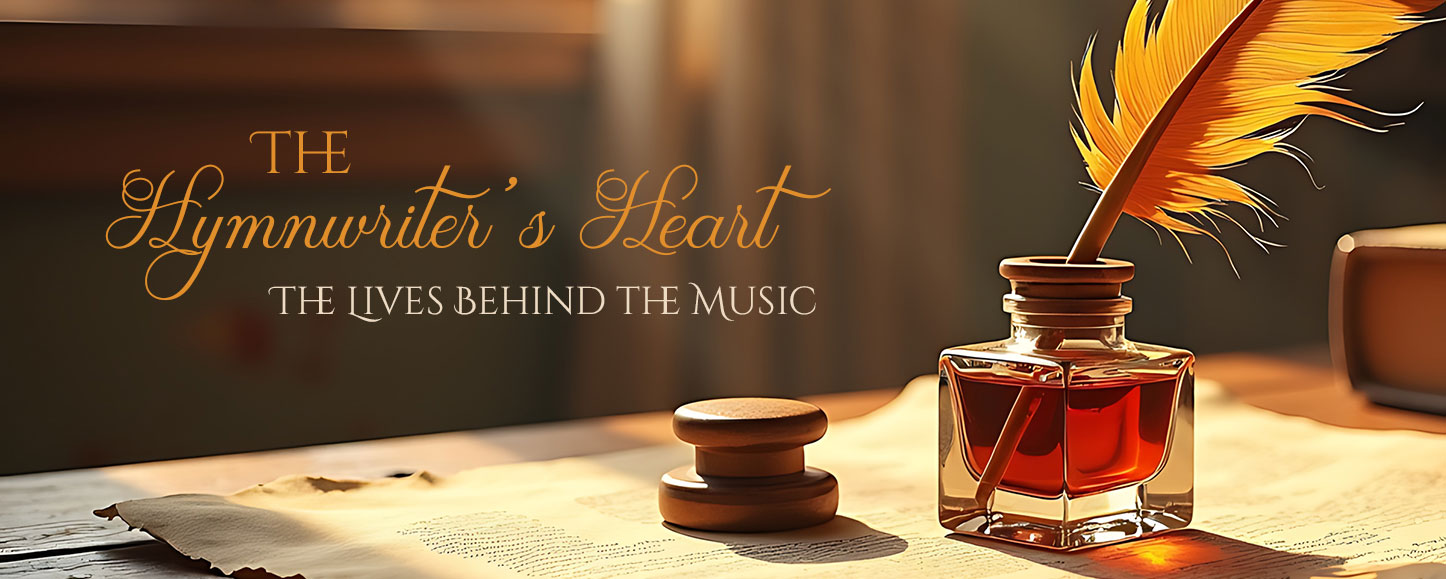
“To God Be the Glory”
Fanny J. Crosby
1820-1915
Frances Jane Crosby, born March 24, 1820, was a prolific writer with over 8,000 hymns and many poems and was known as “The Queen of the Gospel Song Writers.”
She is known for the famous hymns “Pass Me Not, O Gentle Saviour“, “Blessed Assurance“, “Jesus Is Tenderly Calling You Home“, “Near the Cross“, “All the Way My Savior Leads Me“, and “To God Be the Glory”.
Amazingly, Fanny was blind.
When Fanny was 6 weeks old, she contracted a virus that resulted in her eyes being inflamed and infected. The doctor who treated Fanny placed mustard seed poultices on her eyes and ground mustard seed in dressings. Mustard poultices are often known to treat sore muscles, chronic pain, or congestion. Mustard seed poultices left on the skin for too long can cause 1st-degree burns. These poultices were placed on Fanny’s tender eyes, and she went blind.
Fanny’s father died when she was 6 months old, and she was raised by her mother and grandmother, who were diligent in teaching her the Word and memorizing passages of Scripture.
Fanny memorized five chapters of the Bible each week from age 10, with the encouragement of her grandmother and another woman; by age 15, she had memorized the four gospels, the Pentateuch, the Book of Proverbs, the Song of Solomon, and many of the Psalms.
Fanny started attending The New York Institution for the Blind just before she was 15. She was a student for 8 years and then went on to teach at the school.
Fanny was full of life and seemingly wanted to please the Lord as a child. It wasn’t until Fanny had a dream one night that she started questioning whether she would truly be in heaven. She gave her life to the Lord after she realized, “for the first time…I had been holding the world in one hand and the Lord in the other.”
Ed Reece notes that even though “with all her apparent devotion to Christ already shared in so many ways, it’s hard to believe she was not converted until 1851, age 31.”
It appears that most of her popular hymns were written later in her life. Fanny married a blind man, Alexander van Alstyne Jr., in 1858. It is noted that Fanny and Van, as she affectionately called him, had a very unconventional marriage as both we very committed to their separate careers. After the death of their only daughter, most of the marriage was lived separately.
Fanny lived through many trials in her life, including the Cholera Pandemic from 1846-1860, losing students from her school, and the death of her infant daughter in 1859, believed to be from typhoid fever.
There were a few times Fanny struggled in her life; one was when she questioned if God could use her to any great degree (she was a child when she was struck with this fear). The other was when she realized she had an insatiable desire for knowledge and a lack of being able to satisfy this desire.
Though Fanny had lost her eyesight, she also knew that her inability to see heightened her other senses. This is obviously seen in her writing and her ability to play a wide variety of musical instruments, such as the piano, organ, harp, and guitar.
There is much to say about Fanny. We could touch on her poems and secular writings or her speeches before the US Senate, Congress, and the President to lobby for educational support for the blind. We could speak about her political songs, her prolific mission work (which was funded by her writings), her involvement in the Wesleyan Holiness movement and revivals, and her care and heart for the poor. But what I want to hone in on is her trust in the Lord. One of the most striking aspects of Fanny’s character was her trust in the Lord and faith in His perfect will for her life.
Fanny says, “It seemed intended by the blessed providence of God that I should be blind all my life, and I thank him for the dispensation. If perfect earthly sight were offered to me tomorrow, I would not accept it. I might not have sung hymns to the praise of God if I had been distracted by the beautiful and interesting things about me.” She also once said, “When I get to heaven, the first face that shall ever gladden my sight will be that of my Savior.”
Fanny never let her circumstances and trials hold her back from honoring Christ. She desired to be used by Him and gave Him glory and thanks in her trials. Great was her thankfulness; if she had had the opportunity not to be blind, she would have passed it up.
Here is a final word from Fanny:
“How many blessings I enjoy that other people don’t. To weep and sigh because I’m blind, I cannot and I won’t.”
How is the Lord using you, not despite your trials and difficulties, but because of them? Are there things you shy away from, but if you leaned upon Christ in your weakness, you would find strength? Do you use your weakness as an excuse or as an opportunity for God to put His grace and power on display through you? Are you content in your circumstances, trusting Christ, and giving Him thanks?
~ by Erin C.
